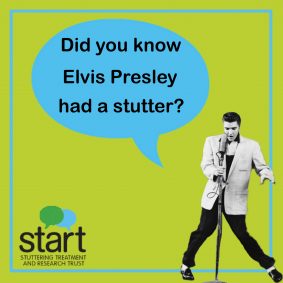Kia ora START community
I’m William, and I’ve been stuttering since the age of three. Janelle was my speech language therapist going through school where I gradually developed my own set of stuttering tools and techniques. Currently, I am studying at the University of Otago and trying to navigate entering the workforce. This stage of a tertiary pathway can be confronting and daunting for young stutterers so I thought I would write a brief reflection about my experiences with the hope of answering some questions younger stutterers might have.
The asset of a stutterer’s unique set of experiences
As most stutterers know, stuttering can be socially alienating and cause anxiety when speaking in public. After feeling bullied, I can remember crying in Janelle’s office at START asking her to wave her magic wand and take my stutter away. However, these difficult experiences give stutterers a unique perspective and change how we interact in group situations. For example, stutterers understand the value of letting people finish their sentences, being inclusive, and hearing everyone’s ideas. Therefore, I think stutterers can have confidence knowing that you have unique skills because of your experiences as a stutterer.
First impressions and applying for jobs
In a professional context, first introductions can widely vary from person to person. Naturally people will have questions if your stutter is noticed, however it is an opportunity to be authentic and not anything to be afraid of. This scenario is a chance to show employers you are empathetic and receptive which is what employers are hunting for. Recruiters do not care if you stutter; if you can work in a team, have a good character, and work hard, you’ll be fine! After all the US President, Joe Biden, has a stutter.
Stuttering in the workplace
Stuttering is treated very differently outside of school. If someone discredits or mocks a stutterer, it reflects poorly on the character of that individual. In larger companies particularly, human resources departments are dedicated to ensuring that a bullying culture cannot thrive. Additionally, when co-workers want to discuss stuttering it can be confronting, however it is an awesome opportunity to share a stutterer’s experience with genuine people trying to develop understanding.
Building up other skills
Being a stutterer is also an opportunity to give back and interact with START and the wider stuttering community. There are many leadership opportunities in a safe, inclusive environment for stutterers, such as providing peer support at schools or speaking to a group of children and young people who stutter. These are opportunities to develop leadership skills and can give confidence to branch out into clubs, societies, and other roles.
Overall, with a stutter, one has a unique set of experiences and it doesn’t need to define or limit job prospects. It’s about going out, meeting people amongst different communities, building a deep and wide knowledge base, and finally pushing yourself out of your comfort zone. Let’s go smash it!
William Missen
William welcomes anyone who would like to talk to reach out to him. If you email us at support@start.org.nz we can forward your email on to him.







 Most communication is two-way. It involves an unpredictable conversation, where you can’t plan your next answer. It also holds the potential for the other person or people to interrupt, or to become impatient. Singing, however, is mostly one-way communication, and eliminates the possibility for these challenges. We have often memorised the lyrics when we sing, rather than facing an unpredictable conversation, and unless we are at karaoke it’s unlikely anyone in the audience is planning to interrupt.
Most communication is two-way. It involves an unpredictable conversation, where you can’t plan your next answer. It also holds the potential for the other person or people to interrupt, or to become impatient. Singing, however, is mostly one-way communication, and eliminates the possibility for these challenges. We have often memorised the lyrics when we sing, rather than facing an unpredictable conversation, and unless we are at karaoke it’s unlikely anyone in the audience is planning to interrupt.
